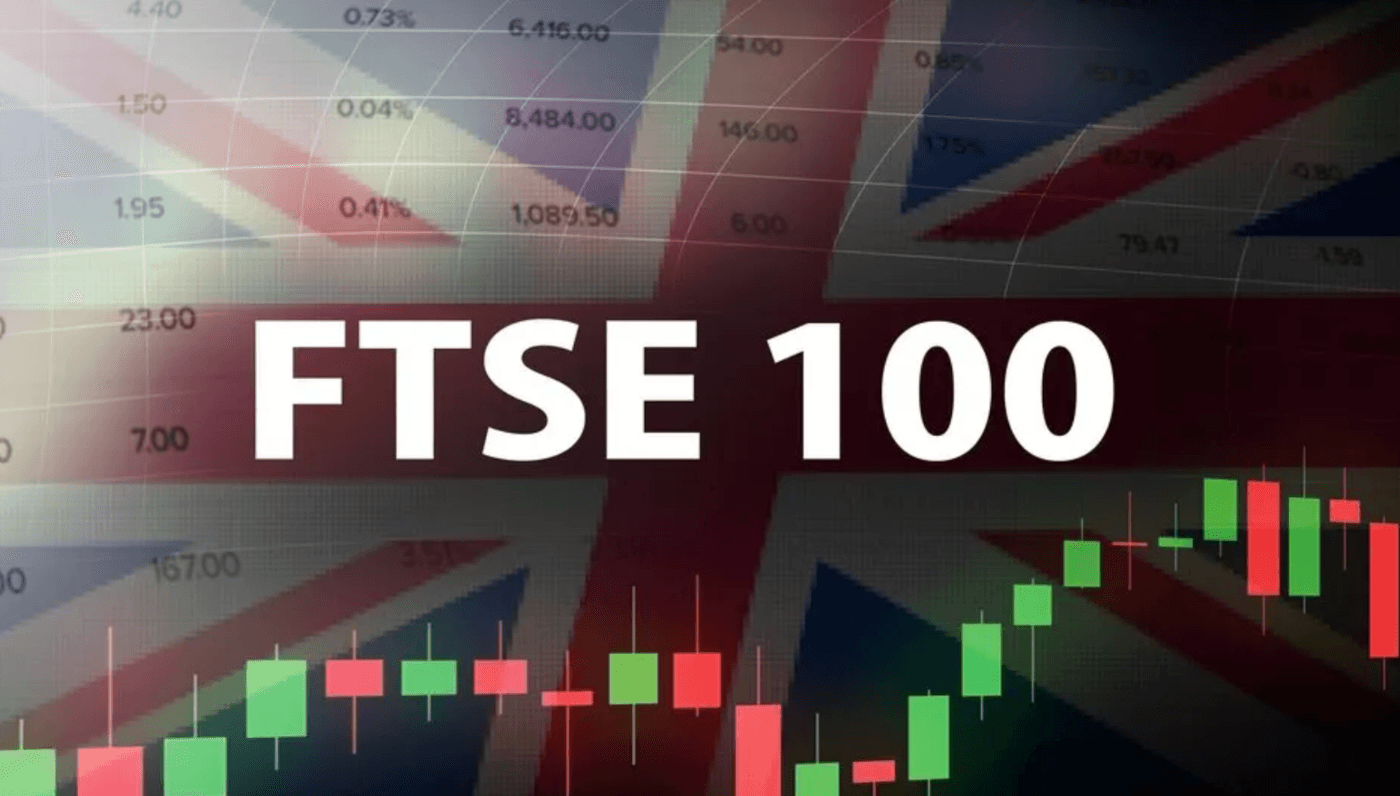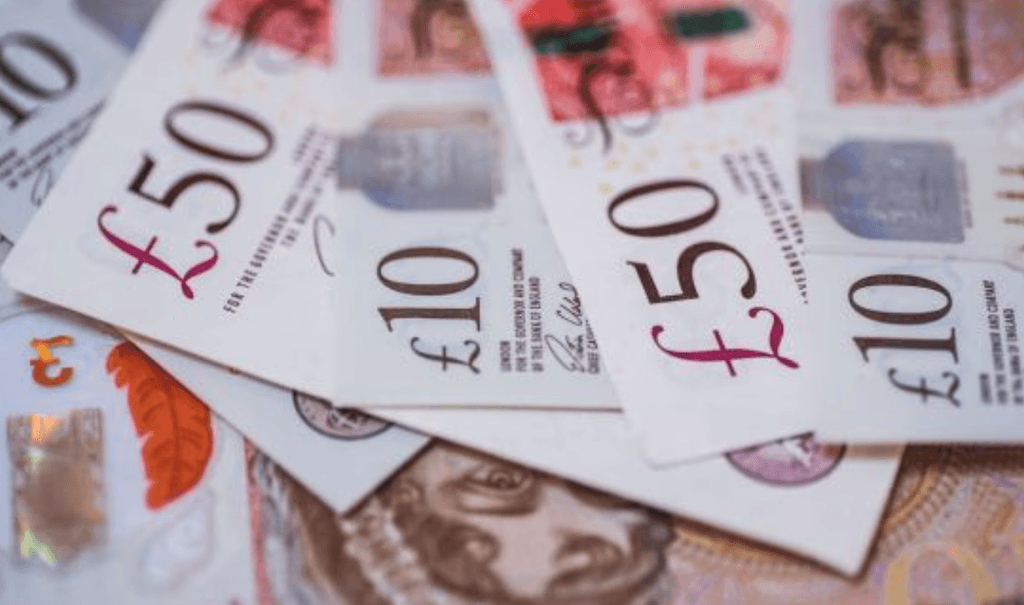Investing
How to invest in FTSE 100

The FTSE 100 is the index of the London Stock Exchange, the reference market for the United Kingdom and one of the largest financial markets in existence, as well as the oldest. It is one of the most important stock market indicators in existence.

Below you can see what it is, how it is composed and the keys to investing in the FTSE 100 index.
FTSE 100: what is it?
The FTSE 100 is the reference index of the London Stock Exchange. Its name derives from the acronym Financial Times Stock Exchange, and the number corresponds to the fact that this index is composed of the 100 main titles listed on this exchange. Specifically, the index is controlled by the Financial Times (which publishes it) together with a company owned by the London Stock Exchange Group.
The London Stock Exchange hours are typically from 8:00 AM to 4:30 PM UK time, Monday to Friday (excluding public holidays). These trading hours are crucial because the FTSE 100 is calculated and updated in real time during this period, reflecting market movements and investor sentiment.
A stock index of the size of the FTSE 100 does not simply constitute a measure of the general evolution of the market. Due to its characteristics of volatility, liquidity, and importance, it is of central importance from an investment point of view—especially during active trading hours when prices can move significantly.
What are the main companies in the FTSE 100 index?
Below are the 10 largest companies by market capitalisation volume listed in the FTSE index
| Position | Company | Ticker | ISIN | ||||
| 1 | Shell | SHEL | GB00BP6MXD84 | ||||
| 2 | Astrazeneca | AZN | GB0009895292 | ||||
| 3 | HSBC | HSBC | LU0666199749 | ||||
| 4 | Unilever | ULVR.L | GB00B10RZP78 | ||||
| 5 | BP | BP | GB0007980591 | ||||
| 6 | Diageo | DEO | GB0002374006 | ||||
| 7 | Rio Tinto | RIO | GB0007188757 | ||||
| 8 | GSK PLC | GSK | GB0009252882 | ||||
| 9 | British American Tobacco | BTI | GB0002875804 | ||||
| 10 | Glencore | GLEN | JE00B4T3BW64 |
| Position | Company | Ticker | ISIN |
| 1 | Shell | SHEL | GB00BP6MXD84 |
| 2 | Astrazeneca | AZN | GB0009895292 |
| 3 | HSBC | HSBC | LU0666199749 |
| 4 | Unilever | ULVR.L | GB00B10RZP78 |
| 5 | BP | BP | GB0007980591 |
| 6 | Diageo | DEO | GB0002374006 |
| 7 | Rio Tinto | RIO | GB0007188757 |
| 8 | GSK PLC | GSK | GB0009252882 |
| 9 | British American Tobacco | BTI | GB0002875804 |
| 10 | Glencore | GLEN | JE00B4T3BW64 |
In the context of global indices, the FTSE 100 stands out as the barometer of the economic health of the largest companies listed in the United Kingdom, comparable to other key indicators of the global stock market.
Across the ocean, the Dow Jones embodies the tradition and industrial power of the United States, but for those looking for a broader representation of the American economy, investing in the S&P 500 can offer diversified exposure to the 500 largest companies that reflect the true potential of the US market.
In this landscape of options for investors, each index, including the FTSE 100, offers a unique window on economic trends and the performance of different sectors, allowing investors to tailor their strategies according to prevailing market conditions.
How to invest in the FTSE 100?
Now that we know what the FTSE 100 is, let's focus on the investment aspect.
FTSE 100 Stocks
The simplest way to invest is through buying shares. Obviously not all those that make up the index, even just the most important ones, like those we just saw. After all, remember that large companies are the ones that move the indices.
So follow these steps:
- Open an account with a broker with access to the index and British companies.
- Make a minimum deposit.
- Find the title (or titles) you want to buy
- Set the order: number of shares, stop loss, take profit... Buy them.
- It is important to monitor all operations to make informed decisions.
One of the most classic ways to invest in an index is to replicate it by purchasing all or most of its securities in the same proportion (depending on the weight they have in the index).
ETF FTSE 100
To invest in the FTSE 100 with ETFs (Exchange Traded Fund), several options are available. One option is to look for ETFs specifically designed to replicate the performance of the FTSE 100. That is, 100% passively managed indexed investment products.
Here are some of the ETFs to invest in the FTSE 100:
iShares Core FTSE 100 UCITS ETF (Dist)
Ticker: IUSZ
ISIN: IE0005042456
HSBC FTSE 100 UCITS ETF GBP
Ticker: H4ZB
ISIN: IE00B42TW061
Vanguard FTSE 100 UCITS ETF Distribution
Ticker: VUKE
ISIN: IE00B810Q511
It is important to remember that by investing in ETFs, you are acquiring a stake in a diversified fund that replicates the FTSE 100 index. This allows you to gain broad exposure to the companies that make up the index and therefore diversify your risk.
If you want to learn more, you can read our guide on what is an ETF.
FTSE 100 Index Investment Funds
To solve the problem of having to actively build a portfolio that emulates the behavior of the FTSE 100 index, creating it share by share, there are investment funds.
Follow the following steps to invest in investment funds:
- Research the objective of various funds: we are talking about fees, past performance and reputation of the manager are all useful elements
- Select the fund: choose a fund that follows the profitability of the index, for which you can turn to managers like iShares, Xtrackers, Invesco or Vanguard.
- Invest: acquire shares of these funds through a brokerage account or a financial advisor.
You can delve into the topic of mutual funds with our guides on how mutual funds work and the disadvantages and advantages of investment funds.
Invest in FTSE 100 futures and options
We now enter the world of derivative products—financial instruments that derive their value from an underlying asset, in this case, the FTSE 100 index.
Derivatives are typically leveraged products, meaning you don’t need to put down the full value of the investment. Instead, you place a margin deposit, which acts as a form of collateral. While this can amplify gains, it also increases potential losses, making these instruments risky and more suitable for experienced investors with solid capital and risk management strategies. They are not recommended for beginners.
On the plus side, both futures and options trading—common forms of derivatives—allow for short selling. This means you can speculate on a market decline by selling first and buying back at a lower price. Derivatives are widely used for hedging and short-term trading due to their flexibility and responsiveness to market movements.
How does the FTSE 100 work?
The FTSE 100 index is reviewed every quarter, on the first Friday of March, June, September and December. During these reviews, decisions are made about which companies are added or removed from the index, and each company's weighting is adjusted based on its market capitalisation.
How is the FTSE 100 index calculated?
A stock index is a weighted average of the market capitalisation of the securities that compose it. Its function is to measure the general evolution of the market it represents.

So, the FTSE 100 is calculated as follows:
- Calculation of the total value of the index: the number of shares in circulation is multiplied by the price of each of them.
- Assigned weight: the weight of each company is then determined based on its market capitalisation relative to the total index, thus obtaining its weight within the index. Overall, the companies belonging to the FTSE 100 represent 70% of the total market value. Therefore, it is representative of the behavior of the London Stock Exchange. Since the London Stock Exchange is the most important market in the UK, this stock index serves as an economic indicator of the country.
And, of course, the FTSE 100 index is regularly reviewed to keep it up to date and reflect market changes. This involves adding new companies, removing those that no longer meet the inclusion criteria, and adjusting the weight of existing companies.
What sectors make up the FTSE 100?
As for the sectoral composition of the index, if we look at an ETF that replicates it (later we will analyse these financial instruments as a way to invest in the FTSE 100), like the Vanguard FTSE 100, we can observe its structure:
- Defensive consumption: 18.15%.
- Financial services: 17.67%.
- Healthcare sector: 13.08%.
- Energy: 12.86%.
- Industry: 11.24%
As you can see, defensive (basic) consumption and financial services have a strong weight in the index. This should not be surprising: the United Kingdom, and particularly London, is one of the main global financial centers.
When does the FTSE 100 index open?
Trading sessions at the London Stock Exchange take place from Monday to Friday, from 9:00 to 16:30. Every 15 seconds, the value of the index is calculated and updated.
On which days does the London Stock Exchange close?
Like all global markets, there are days when, either due to shared holidays or specific English holidays, the stock market remains closed and the indices and shares that are part of the FTSE 100 are not quoted.
However, just because they are not quoted that day does not mean that orders cannot be accumulated that will be resolved at the opening of the market.
- Monday, January 2 (New Year's Day)
- Friday, April 7 (Good Friday)
- Monday, April 10 (Easter Monday)
- Monday, May 1 (Early May Bank Holiday)
- Monday, May 8 (Bank Holiday for the coronation of King Charles III)
- Monday, May 29 (Spring Bank Holiday)
- Monday, August 28 (Summer Bank Holiday)
- Monday, December 25 (Christmas)
- Tuesday, December 26 (Boxing Day)
FAQs
What is the FTSE 100?
The FTSE 100 is the benchmark index of the London Stock Exchange, composed of the 100 main securities listed on this exchange.
Which sectors are represented in the FTSE 100?
Defensive consumption: 18.15%. Financial services: 17.67%. Healthcare sector: 13.08%. Energy: 12.86%. Industry: 11.24%